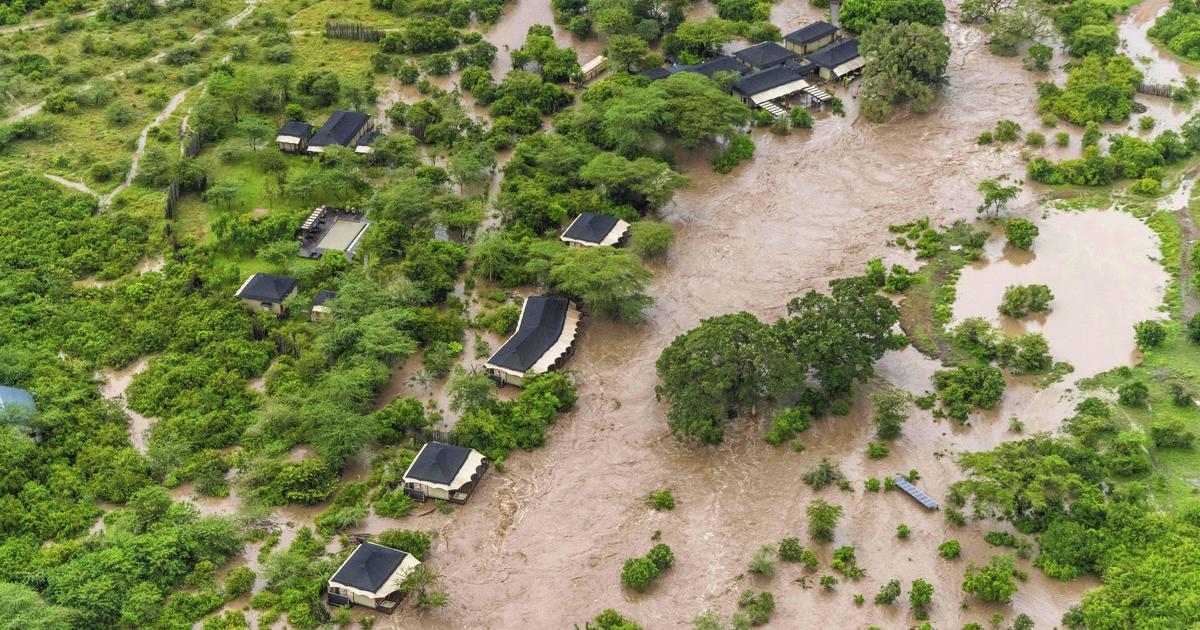Midwest mayors remain upbeat despite flooding on Mississippi River
The Upper Mississippi River will rise to near record-high levels as it flows through Wisconsin and Iowa, but officials said Thursday they expected to hold back floodwaters with a combination of flood walls, temporary barriers and wetlands, especially if dry weather continues.
The Mississippi already has crested in St. Paul, Minnesota, and La Crosse, Wisconsin, but it will be days before it begins falling in some areas to the south. The high water is due to the quick melting of a giant snowpack in northern Minnesota that is slowly moving down the approximately 2,300-mile river that will ultimately empty into the Gulf of Mexico.
Despite the flooding in parts of the Upper Midwest, states to the south aren't expected to experience any flooding because tributaries in Iowa, Illinois and other Midwest states are running lower than usual, said Mike Welvaert, a National Weather Service hydrologist. Next week is expected to be mostly dry with only some showers in the forecast, he said, meaning that's unlikely to change.
"Future precipitation is what is going to drive the future risk," Welvaert said on a conference call with reporters.
Major cities in Iowa and Illinois won't see the river crest until this weekend or early next week, and then it will take about 10 days to recede to more normal levels.
Down the river from Dubuque, Iowa, the Mississippi is expected to crest this weekend at 23 feet, local officials said, well above flood stage, which is 16 feet.
"There's 17 flood gates," John Klostermann, director of Dubuque Public Works told CBS News. "And for the third time in since we built the system in 1973, that will have it completely closed."
In the Quad-Cities area, made up of five abutting cities that border the river in Iowa and Illinois, that crest is expected on Monday, making it the third-highest flood to ever recorded in that area.
Bettendorf Mayor Bob Gallagher, whose community is one of those five cities, said he is confident his neighbors will endure the flooding with little damage, even as it reaches an expected 22 feet.
Bettendorf and Moline, Illinois, have flood walls, he noted. Neighboring Davenport doesn't have a flood wall, but makes use of parkland that can flood and portable sand-filled barriers that protect the downtown in the city of 100,000 people, he said.
"They have kind of become experts in the flood fight," Gallagher said of Davenport.
Upriver in La Crosse, Wisconsin, flooding was under control. Mayor Mitch Reynolds credited advanced warning, an improved sewer system, and use of a marsh to sponge up floodwaters.
He still expects some cleanup and repairing after the river rose nearly 4 feet above the flood stage.
"We've had significant damage to parks and some other infrastructure and it will take a while for the water to recede to get to the point where we can access some of that damage," Reynolds said, on the video call, alongside fellow mayors. "We'll be in the thick of this for some time."
The flooding has forced the Army Corps of Engineers to close more than a dozen locks, stopping barges relied upon by farmers and the region's manufacturers.
But the flooding and the barge delays are only expected to last a few weeks, far shorter than in 2019 when flooding closed locks for more than three months.
"We're expecting this to be a relatively quick flood," Smith said Drew Smith, with the Army Corps of Engineers in St. Louis.
Even as officials expressed optimism, some riverfront homes in Guttenberg, Iowa, have seen flooded homes and major disruptions to daily life.
"This is a little bit extreme," Guttenberg resident Steve Von Handorf told CBS News. "I don't have any heat. I don't have any water. It's like camping in an expensive house."
On the islands dotting the river, many homes are now accessible only by boat.
"We've got 20 inches of water in the basement," Handorf said. "This is part of the life that we know. You're on the water, so you have to take the good with the bad."
And in Campbell, a town of 4,000 people on French Island in the Mississippi and Black rivers just west of La Crosse, residents continued to struggle with water in their yards and basements Thursday.
Asked how emergency crews were doing in Campbell, Fire Chief Nate Melby said in a text, "Just trying to maintain pumps and keep up the battle."



